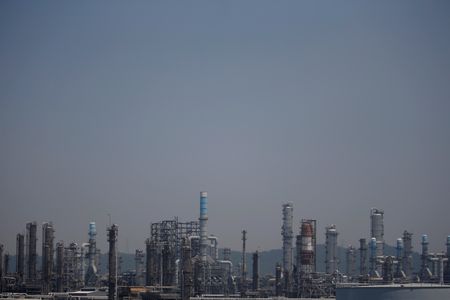
SEOUL, Sep 1 (Reuters) – South Korea’s factory activity shrank in August by the sharpest pace in two years, on weakening demand amid high inflation, rising interest rates and the war in Ukraine, a private-sector survey showed on Thursday.
The S&P Global purchasing managers’ index (PMI) fell to a seasonally-adjusted 47.6 in August from 49.8 in July, remaining below the 50-mark that separates expansion from contraction in factory activity for a second month and hitting the lowest since July 2020.
Output and new orders weakened by the sharpest since June 2020, while new export orders fell by the most since July 2020.
“Firms often commented on concerns that the economy would continue to perform poorly amid weak demand and challenging global economic conditions,” said Usamah Bhatti, economist at S&P Global Market Intelligence.
“The outlook for output over the coming year dimmed in August as concern that the economic slowdown would deepen grew among manufacturers, while businesses also noted the lingering impact of inflation and the war in Ukraine.”
The weaker demand did however help ease price pressures. Input and output prices rose by the slowest rate in 19 and 18 months, respectively.
There were also signs of improvement in supply chain snags. Suppliers’ delivery times, which show the degree of disruption, deteriorated, but by the least in 21 months, while the backlog of work decreased for the first time in 22 months, as firms were able to complete work in hand amid weak inflow of new orders.
Manufacturers remained optimistic over the coming year for output, but the level of optimism was the weakest since October last year.
(Reporting by Jihoon Lee; Editing by Sam Holmes)

